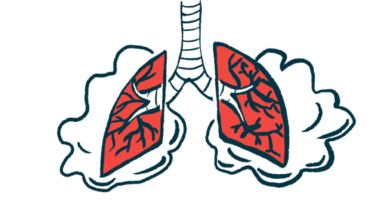Undernutrition may occur in almost half of hospitalized children with CF
About 30% of children with other chronic diseases were undernourished

Undernutrition, or not getting enough nutrients to meet the body’s needs, may occur in as many as half of hospitalized children with cystic fibrosis (CF), making it more common than in other chronic diseases, a study finds.
The study, “Undernutrition is still highly frequent in hospitalized children with cystic fibrosis,” was published as a short communication in Archives de Pédiatrie by a team of researchers in France.
With CF, thick, sticky mucus makes it hard for patients to breathe and increases the risk of lung infections. It also causes difficulty in digesting and absorbing nutrients from food, which is associated with lower pulmonary function and reduced survival.
When the body doesn’t get enough nutrients, it can’t develop properly, and poor nutrition can weaken the immune system, making it hard to fight off infections.
To help with this, patients must often take supplements to get the nutrients they require. They may also need to follow a special diet that’s higher in calories and healthy fats.
Many still have trouble gaining weight or getting the right nutrition, however. This can be even more difficult for children in the hospital.
Nutrition in children with CF
“In hospitalized children with CF, undernutrition and an unmet CF-specific nutritional status goal are frequent,” wrote the researchers, who reviewed data from surveys carried out by e-PINUT, an initiative to identify undernutrition in hospital settings, to find out how common undernutrition is in hospitalized CF children. The surveys ran more than two weeks in March each year from 2010-2019.
The researchers collected data from more than 15,000 hospitalized children, including 114 with CF, from 34 centers across France and Belgium. Their mean age was 9.9. Hospitalization was scheduled in 47% of cases, 53% due to an emergency.
Nearly half (46%) the children with CF were undernourished, defined as a body mass index (BMI) below 18.5 kg per square meter. The BMI is a measure that relates body weight to height. This figure was higher than 5,863 children with other chronic diseases, where 30.5% were undernourished.
According to the CF-specific nutritional status goal, the BMI (for children older than 2) and weight in relation to height (for children younger than 2) needs to be at least average of healthy children of the same age and sex. Most (81%) of the children with CF were below that goal.
This occurred despite nutritional support being provided to many (72%) through nutritional advice (30%), oral supplements (32%), enteral nutrition, which is providing nutrition through a tube into the stomach or intestine (32%), and parenteral nutrition, providing nutrition directly into a vein (6%).
On average, children stayed in the hospital for 9.3 days. During their hospitalization, 17.5% lost more than 5% of their body weight. As a result, doctors increased the level of nutritional support in 15% of them to help them regain it.
Children with CF were on average 6.9 years older than those with other chronic diseases and had a lower BMI. Nutritional support was more frequently provided to children with CF upon admission to the hospital compared with the other children (72% vs. 41%).
“Undernutrition and nutritional support were more frequent in patients with CF than in other chronic diseases,” said the researchers, who noted that status is likely to improve as treatments such as CFTR modulators become more available for younger patients.








